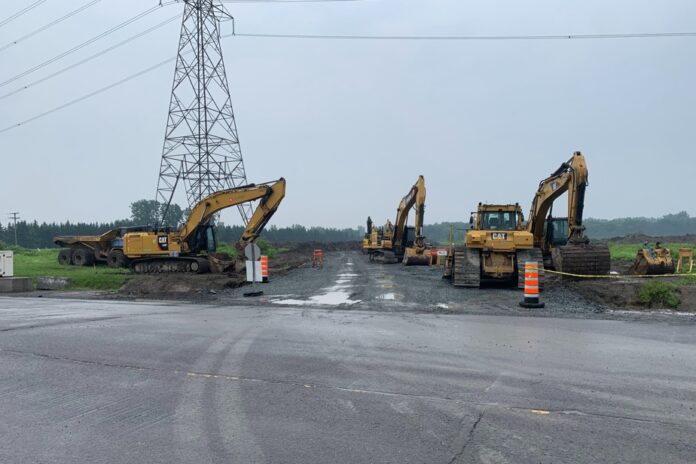(Quebec) After GM, Quebec and Ottawa are rolling out the red carpet for Ford, which is officially moving forward with the installation of a battery plant in Bécancour in the Centre-du-Québec region. They are granting total aid of $640 million, divided equally, for a project valued at $1.2 billion, La Presse has learned. More than 300 jobs will be created.
The $320 million in aid from the Legault government comes in the form of an interest-free loan, much of which will be a forgivable loan (“forgivable” loan).
The American giant will not have to repay this portion of the loan if it meets certain conditions within a set deadline, such as the number of jobs created and maintained. It amounts to a subsidy.
Prime Minister François Legault will make the announcement this Thursday of this cathode factory project, the main component of the lithium-ion battery that powers electric vehicles. Cathodes represent about 40% of the cost of a cell. Production could start in 2025.
La Presse reported on this project in the making last November. It was reported in July that Ford and its South Korean partners (cell maker SK On and EcoPro BM, which specializes in battery components) had purchased a huge piece of land in the Bécancour industrial park for $14 million. It was a sign of Ford’s imminent arrival in the Quebec battery industry.
François Legault will be accompanied by the Minister of Economy and Energy, Pierre Fitzgibbon, and the Member of Parliament for Nicolet-Bécancour, Donald Martel. The latter is Mr. Fitzgibbon’s parliamentary assistant for the “zones of innovation” component. Bécancour also became the third largest innovation zone in Quebec earlier this year: the city is part of the “Energy Transition Valley”, along with Trois-Rivières and Shawinigan. This is the place favored by Quebec to develop the battery industry.
It is in the backyard of the Federal Minister of Innovation, Science and Industry, François-Philippe Champagne, MP for Saint-Maurice–Champlain. He will take part in the announcement for the Trudeau government.
In the Bécancour industrial park, Ford will set up on land north of Highway 30, opposite those of GM-POSCO and Nemaska Lithium. Ford has entered into an agreement to obtain supplies of lithium hydroxide produced at the Nemaska Lithium plant, which will also be built in Bécancour.
With their aid of 640 million, the two governments are financing half of Ford’s project, as they did for General Motors (GM) and its South Korean partner POSCO.
In May, GM announced the construction of a plant in Bécancour – a project estimated at $600 million – which will produce battery materials starting in 2025. Ottawa and Quebec have granted loans totaling $300 million. Of the 152 million offered by Quebec, the major part – 134 million – is paid in the form of a forgivable loan. In other words, it will turn into a subsidy if the promised 200 jobs are achieved; half in the case of the federal loan.
“We are building a new industry with thousands of paying jobs,” argued Premier François Legault. We will create wealth with better paid jobs that will pay more taxes to the Quebec government. The calculation is made on a case-by-case basis. Ford’s case clearly deserved the same treatment, in the eyes of governments.
Pierre Fitzgibbon had argued that Quebec did not have enough electricity to power this plant. Hydro-Québec later maintained that the energy was available, but that the requirements and the very short deadlines to meet them made any agreement impossible.
François Legault had subsequently lobbied the federal government for Quebec to obtain fair treatment compared to Ontario in the development of its battery industry. Ottawa has granted more than $13 billion over 10 years for Volkswagen’s mega-factory in St. Thomas, in the southwest of the province.















